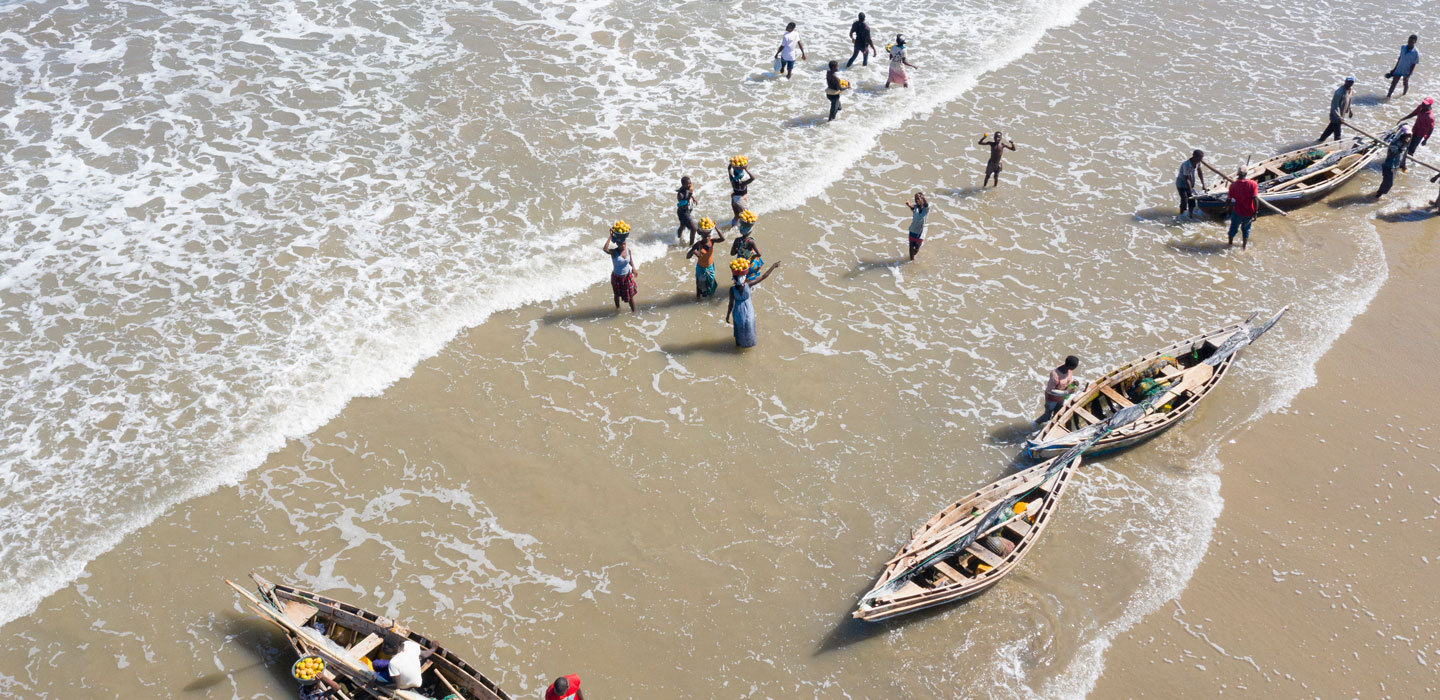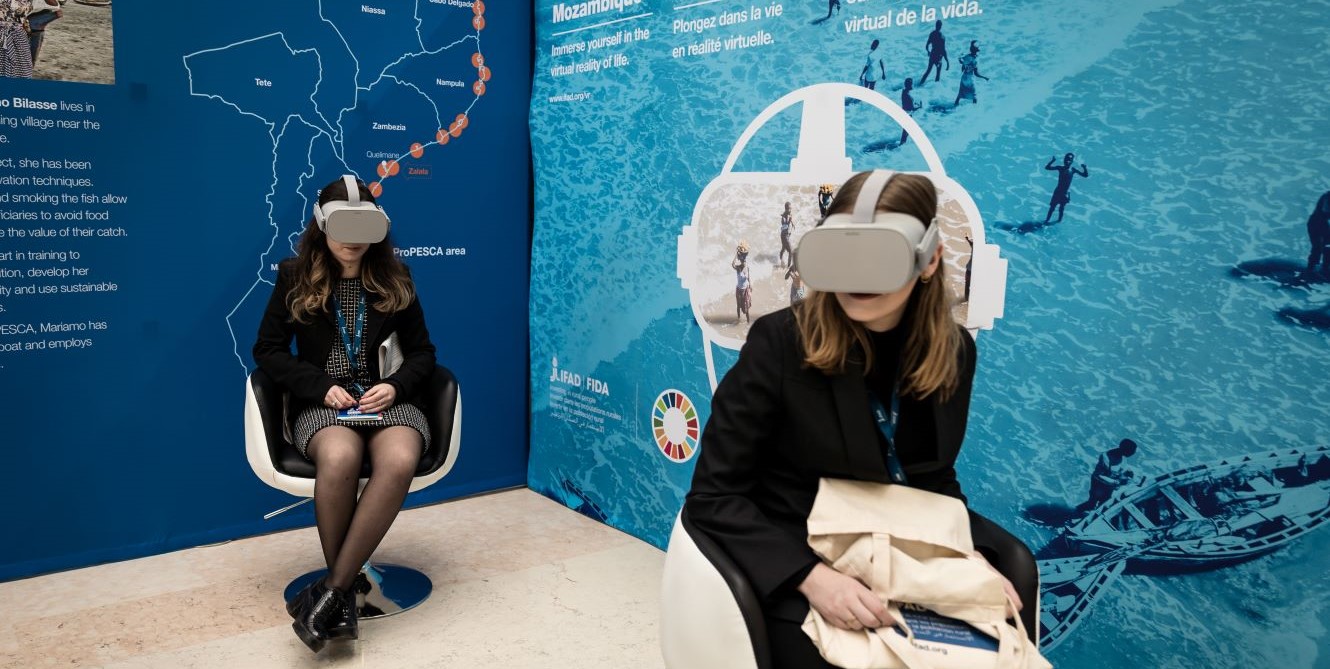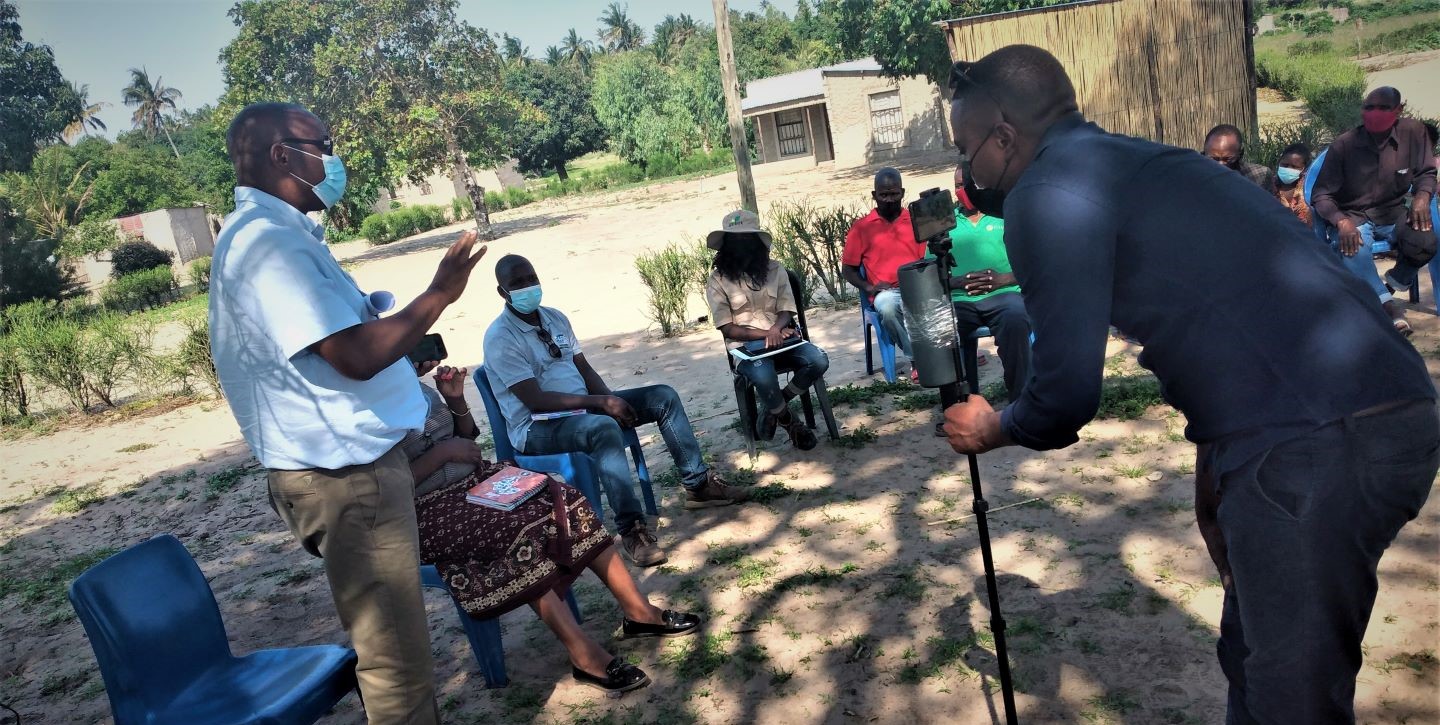De la realidad virtual a las visitas virtuales sobre el terreno: El FIDA y la tecnología que utilizó para mantenerse conectado con las comunidades rurales durante la COVID-19
IFAD Asset Request Portlet
Publicador de contenidos
De la realidad virtual a las visitas virtuales sobre el terreno: El FIDA y la tecnología que utilizó para mantenerse conectado con las comunidades rurales durante la COVID-19
Tiempo estimado de lectura: 5 minutos
Hace dos años, las restricciones de movilidad a cause de la COVID-19 nos separó físicamente a todos. Pero el uso creativo de la tecnología nos ayudó a mantenernos unidos. Hoy, mientras los gigantes de la tecnología prometen llevarnos a todos al metaverso, el FIDA explora las diferentes formas de usar la tecnología de vanguardia para ayudarnos a ver el mundo a través de los ojos de los demás.
Próximamente en español.
Two years ago, COVID-19 closures forced us all apart – but the creative use of technology helped keep us together.
Before the pandemic, a lack of communication infrastructure was making it harder for IFAD to reach out to the world’s poorest rural-dwellers, and to bring their voices to the world. Today, with tech companies promising to take all of us into the metaverse, IFAD is exploring how virtual reality can help us see the world through each other’s eyes and learn about each other’s experiences.
Let’s take a virtual trip to Mozambique, where an inspiring woman entrepreneur whose life changed thanks to the ProPESCA project shows us around her world – and where IFAD experts meet virtually with ProCAVA farmers to understand how the project is serving their needs.

Lived realities
Over the years, Mariamo Fermino has seen her fishing business grow, powered by business training and access to finance through ProPESCA. She bought her own boat and hired six fishers, and she even paid for her husband’s training as a primary school teacher. Her savings helped her get by when sales plummeted due to COVID-19 restrictions, and she still dreams of owning a fleet of five boats one day.
Shortly before the COVID-19 pandemic began, a team supported by the IFAD Innovation Challenge visited Mariamo in her home of Zalala First Village. Using the latest virtual reality filming equipment, the team followed Mariamo through her day, exploring the landscape in which she is growing her business and learning how climate change is affecting her community.
This footage was transformed into an immersive 360-degree experience.
"It was a way to tell the story of that village, the story of those people, and of Mariamo,” says Narciso Manhenje, IFAD’s Country Programme Analyst for Mozambique, who facilitated the visit. “It was really fantastic.”
The best way to experience Mariamo’s story is through a virtual reality headset. Before the pandemic, many of our visitors had the chance to don one of our headsets and step right into Zalala. But when the realities of COVID-19 made that less safe, we got to work to make sure anyone, anywhere, could do the same. Today, just about any device works well as a window to her world.
Step through the portal to Zalala First Village.

A remote connection kit in use during a field visit in Limpopo District, Mozambique.
Virtual field visits
When COVID-19 struck, travel restrictions made it impossible for IFAD to carry out one of its most important tasks: visiting projects around the world to review their progress, and to connect with project participants to better understand their needs.
“In many communities, it is a party day when visitors come,” Narciso says. “During the pandemic, they missed having physical connections: getting advice from extension workers or project staff, and giving their feedback.”
Like everyone else, IFAD innovated, creating digital connections that kept staff and participants COVID-safe. And by 2021, Narciso and his colleagues in Mozambique were ready to try out a new way of conducting field visits to ProCAVA and other projects.
The idea was simple: IFAD staff from a local country office visit the site in person, bringing with them the tech needed to virtually connect as many as 20–30 IFAD staff and consultants from around the world.
All it takes is some simple equipment collected by the country office: a smartphone, a tripod, a portable Bluetooth speaker, and some tape to attach the speaker to the tripod. Add in an interpreter or two, and the mission has all the kit it needs to take IFAD experts into the field and talk to project participants. The cost? Less than US$100.
In some areas where signal reception was poor, the team came up with workarounds. They took along a portable internet router with a SIM card, a small power bank to keep the router running in the field, and plenty of cable, and attached the router as high as possible in a nearby tree to catch a signal.
The result was a series of conversations in which project participants shared their experiences with their IFAD collaborators around the world.
“When we’d give the floor to a remote colleague and we’d say ‘This is so-and-so, she is in Rome,’ the communities were really pleased to interact with someone who is so far away,” Narciso says. “They could feel that the people were there, they could see their faces, hear their voices and respond to their questions directly.”
The future is already here
As tech giants explore virtual worlds, we at IFAD are using these new technologies to help us understand the one we already live in.
Rural dwellers in developing countries are on the front lines of climate change. They are the keystone of sustainable food systems. They’re the first to be affected by climate change, and they also hold some of the solutions to the crisis. In Mozambique, our IFAD colleagues have shown how technology can help the rest of the world see their realities and hear their voices.
Through cutting-edge tech, we can work together to understand and address today’s greatest challenges – preventing future pandemics, building food systems that nourish us all, conserving ecosystems, and mitigating and adapting to climate change – if we put people first.
Learn more about innovation at IFAD.
Find out more about IFAD’s work in Mozambique.
Fecha de publicación: 10 marzo 2022